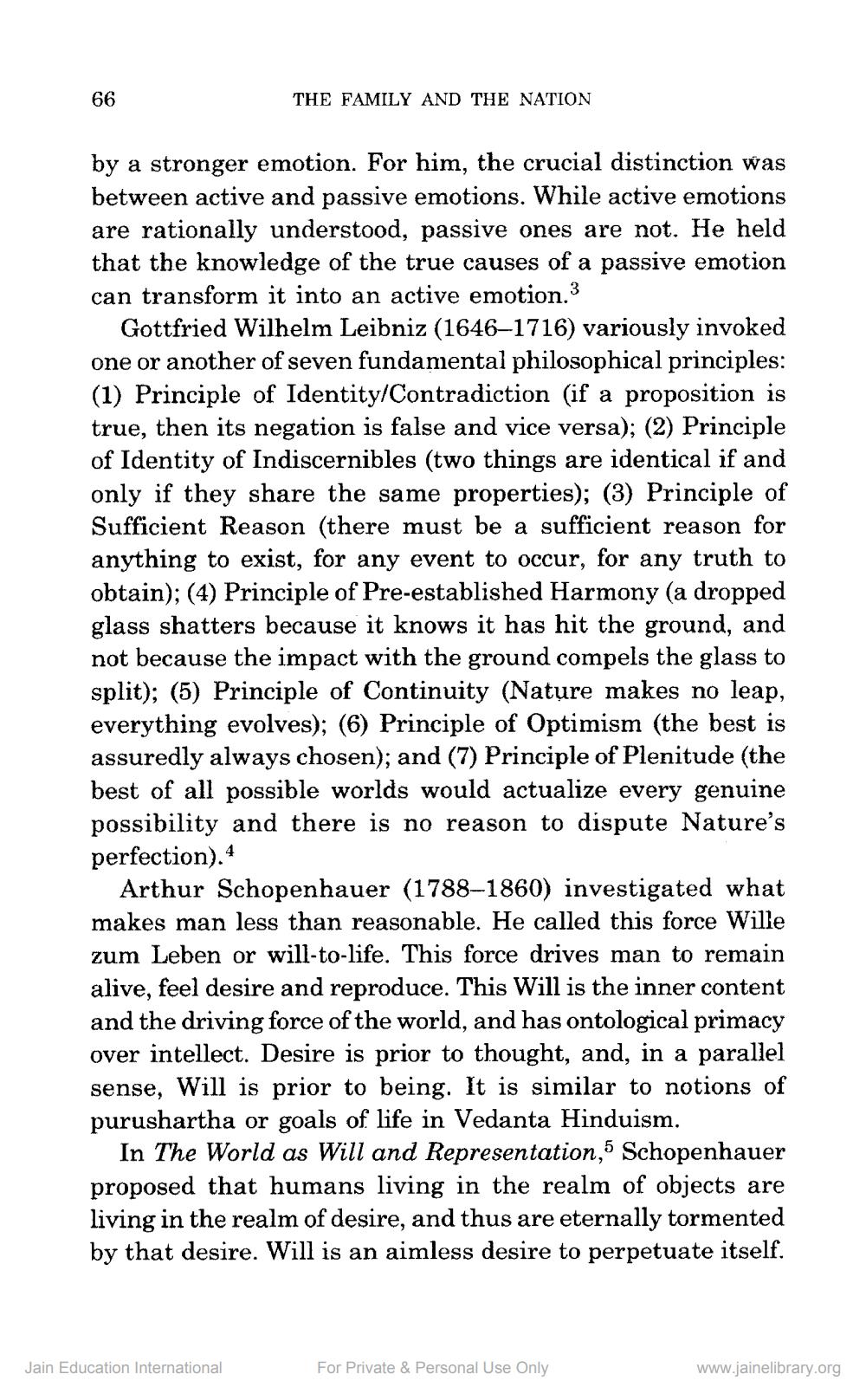________________
66
THE FAMILY AND THE NATION
by a stronger emotion. For him, the crucial distinction was between active and passive emotions. While active emotions are rationally understood, passive ones are not. He held that the knowledge of the true causes of a passive emotion can transform it into an active emotion.”
Gottfried Wilhelm Leibniz (1646–1716) variously invoked one or another of seven fundamental philosophical principles: (1) Principle of Identity/Contradiction (if a proposition is true, then its negation is false and vice versa); (2) Principle of Identity of Indiscernibles (two things are identical if and only if they share the same properties); (3) Principle of Sufficient Reason (there must be a sufficient reason for anything to exist, for any event to occur, for any truth to obtain); (4) Principle of Pre-established Harmony (a dropped glass shatters because it knows it has hit the ground, and not because the impact with the ground compels the glass to split); (5) Principle of Continuity (Nature makes no leap, everything evolves); (6) Principle of Optimism (the best is assuredly always chosen); and (7) Principle of Plenitude (the best of all possible worlds would actualize every genuine possibility and there is no reason to dispute Nature's perfection).4
Arthur Schopenhauer (1788–1860) investigated what makes man less than reasonable. He called this force Wille zum Leben or will-to-life. This force drives man to remain alive, feel desire and reproduce. This will is the inner content and the driving force of the world, and has ontological primacy over intellect. Desire is prior to thought, and, in a parallel sense, Will is prior to being. It is similar to notions of purushartha or goals of life in Vedanta Hinduism.
In The World as Will and Representation,5 Schopenhauer proposed that humans living in the realm of objects are living in the realm of desire, and thus are eternally tormented by that desire. Will is an aimless desire to perpetuate itself.
Jain Education International
For Private & Personal Use Only
www.jainelibrary.org




